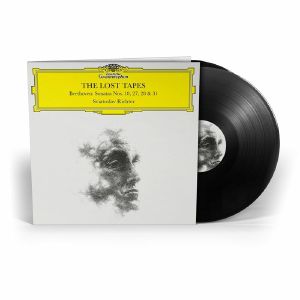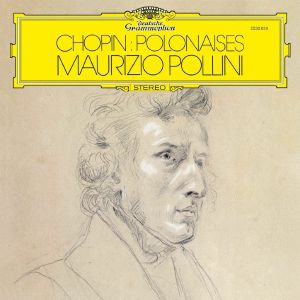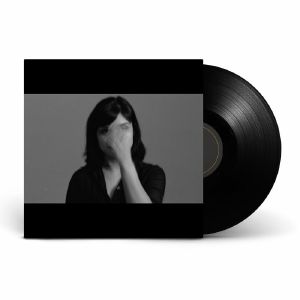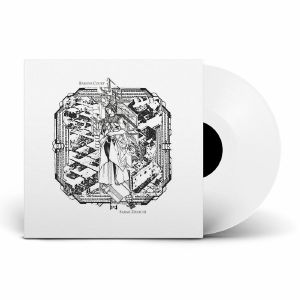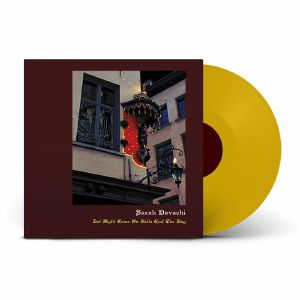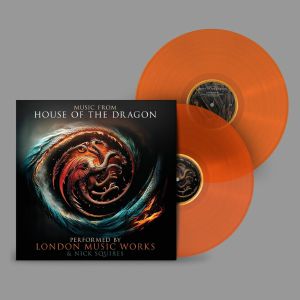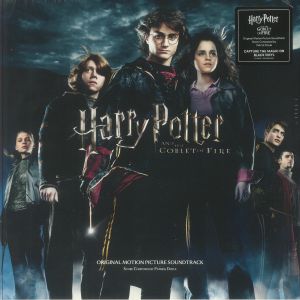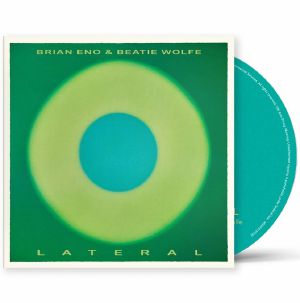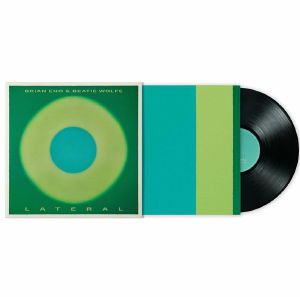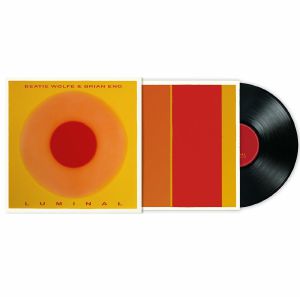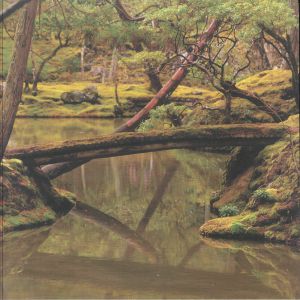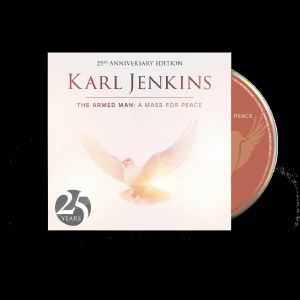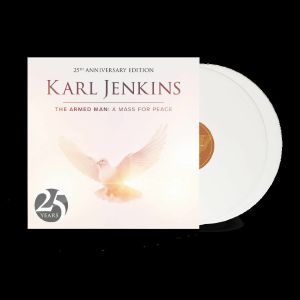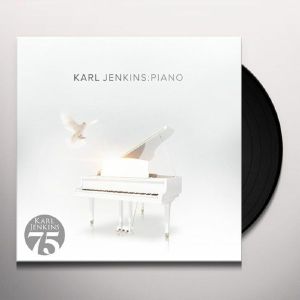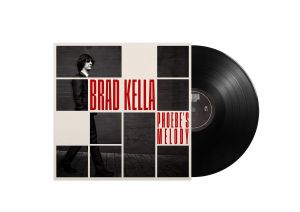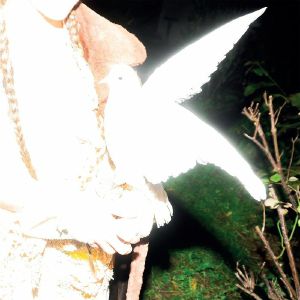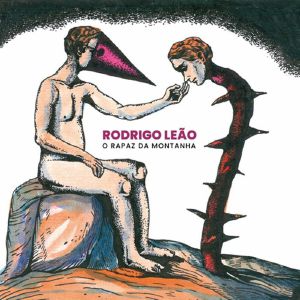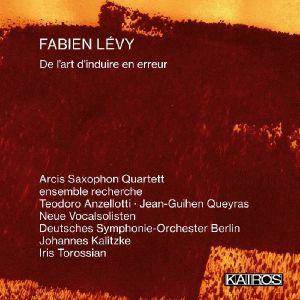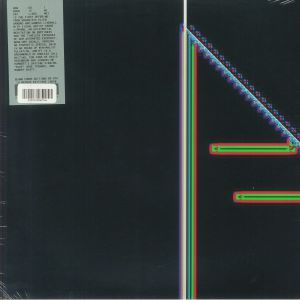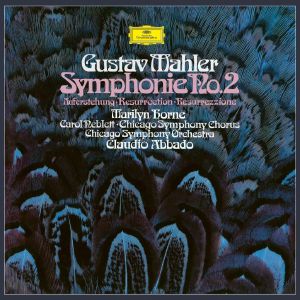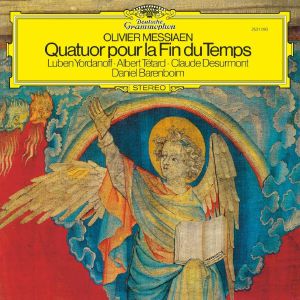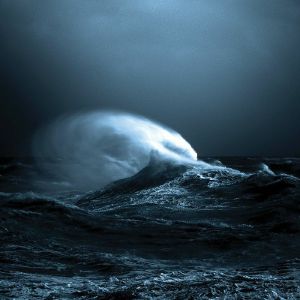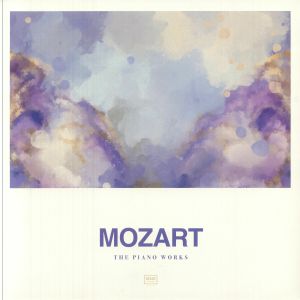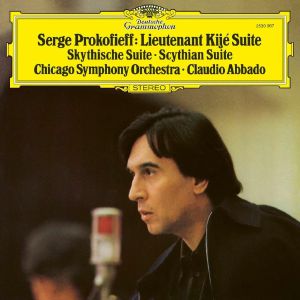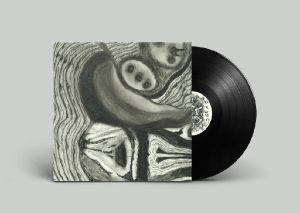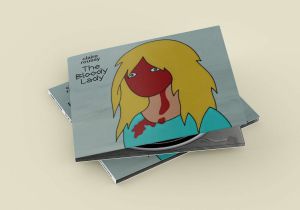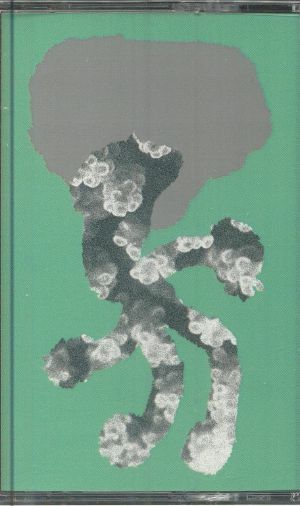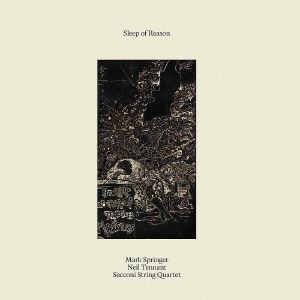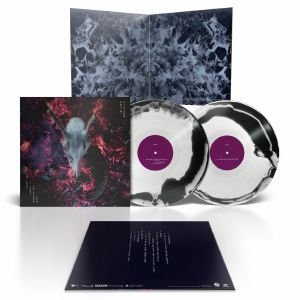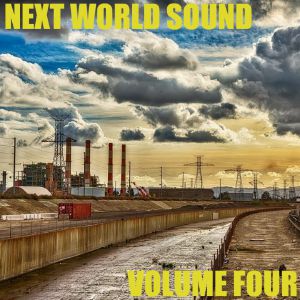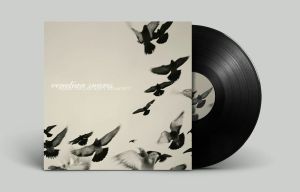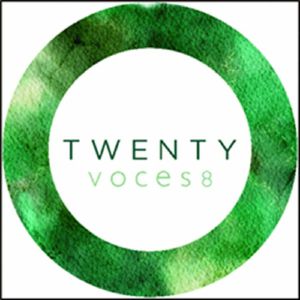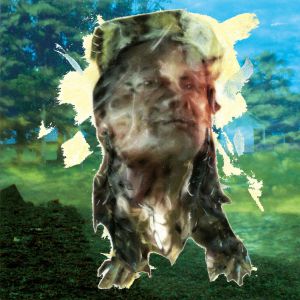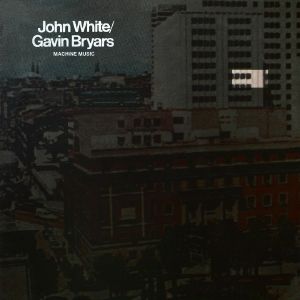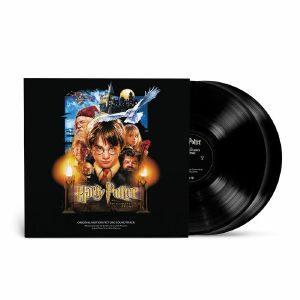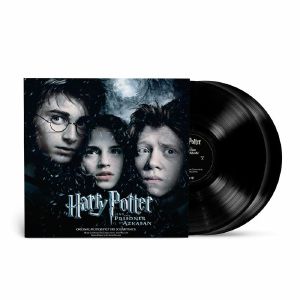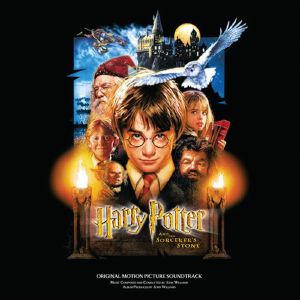Back catalogue: Classical
Juno's full catalogue of Classical
专辑
Martha ARGERICH / VARIOUS
Cat: 502173 2583857. Rel: 05 Jun 25
in stock $25.47
Lost Tapes: Sonatas Nos 18, 27, 28 & 31 (gatefold 180 gram vinyl 2xLP)
Cat: 486721 4. Rel: 05 Jun 25
in stock $40.74
The Gentlemen (Soundtrack) (limited numbered 180 gram audiophile translucent yellow vinyl LP + 4 booklet)
Cat: MOVATM 276Y. Rel: 06 Jun 25
Review: The Guy Ritchie-penned film The Gentlemen centres on Mickey Pearson (Matthew McConaughey), an American in London whose luxurious lap founders on the back of a lucrative but prone marijuana empire. As he plans to retire and sell his business, a web of schemes, blackmail, and betrayal unfolds as rivals plot to seize his fortune. British composer Chris Benstead's soundtrack is elusive and sluicing, incorporating Charleston-inciting bass undertows, ticking clocks and finger-clicking inquests, as of a main character's paranoia threatening to make truly manifest.
… Read more in stock $31.97
Chopin: Polonaises (gatefold 180 gram vinyl 2xLP)
Cat: 486713 3. Rel: 05 Jun 25
in stock $70.17
Review: Ambre Ciel is a Montreal-based composer and singer known for her dreamy, spacious soundscapes. Drawing from impressionism, American minimalism and contemporary classical music, her work blends layered violins, piano and ethereal vocals in both English and French so is a sophisticated and stylish sound. Coming from a family of artists, she began with violin at six, later experimenting with pedals, loops and harmonies. Her debut album Still, There is the Sea marks a delicate yet bold entry into her sonic world and is a deeply personal, atmospheric journey shaped by strings, acoustic textures and voice. It's an imperfect beginning, as she calls it, but one brimming with intention and beauty.
… Read more in stock $25.75
in stock $15.28
Still There Is The Sea (limited bio vinyl LP + insert)
Cat: GONDLP 77LE. Rel: 05 Jun 25
in stock $27.45
Review: A fourth full length from the Montreal-based enigma. Sarah Davachi's electroacoustic compositions have become the stuff of legend and hallucination-inducing live shows, refrains that bore into your mind then soul, detailed and complex ideas borne out in minimalist moods capable of taking listeners beyond themselves, out to somewhere completely new. Talk about a curveball, then. All My Circles Run features five totally unique compositions which all share one common trait - they eschew synthesisers and instead each focus on a different instrument. Hence the titles. 'For Strings', 'For Voice', 'For Piano', 'For Organ', 'Chanter'. But, although the record's core parts represent a different move for the musician, Davachi's incredible ear for subtly powerful sounds remains at the centre of the experience. So prepare to be blown away again. Gently.
… Read more in stock $29.15
Review: Originally released in 2015, this reissue returns to the stunning debut full-length from Canadian electroacoustic composer Sarah Davachi, who is rapidly becoming a big deal in the world of experimental sounds. Emerging from brief but acclaimed releases on labels like Important Records' Cassauna and Full Spectrum, this album marked her as a unique voice within the world of minimalist and experimental sound. Trained at Mills College, Davachi's work reflects a deep understanding of synthesis and acoustic instrumentation, with a focus on patience, atmosphere and tone over flashy modular theatrics. Rather than overwhelming the listener with density, Davachi builds a deep listening album full of impressive tracks. Vintage synths like the Buchla 200, EMS Synthi and Prophet 5 provide an enveloping tonal palette that reveal the composer's intent to create a more intimate, hybrid sonic language. The opening track 'heliotrope' unfolds like smoke rising into a high ceiling, shimmering with evolving harmonic detail. 'wood green' moves from near-silence to a radiant calm. An album of introspection and careful design in a world of maximalist electronics, a rare piece of compositional grace. Its return in reissue form feels not only deserved but necessary.
… Read more in stock $34.24
Let Night Come On Bells End The Day (reissue) (yellow vinyl LP)
Cat: LMR XLP. Rel: 05 Jun 25
in stock $34.24
Music From House Of The Dragon ("orange edge glow" vinyl 2xLP)
Cat: SILLP 1779. Rel: 04 Jun 25
in stock $38.77
Harry Potter & The Goblet Of Fire (Soundtrack) (gatefold 2xLP)
Cat: 060349 7821952. Rel: 05 Jun 25
in stock $43.57
Review: Brian Eno's career has always been about explorationiof sound, technology and the emotional power of music. After pioneering ambient music, Eno has consistently sought out new ways to blend different genres and voices and his latest collaboration with Beatie Wolfe continues this tradition. Wolfe, a British-American artist with an innovative approach to music and activism, complements Eno's atmospheric world with her emotive, alternative vocals. Their work, recorded in London, moves seamlessly from the meditative to the experimental, with tracks like 'Big Empty Country' offering stark contrasts between the brightness of the day and the shadows of the night. This release is not only a nod to Eno's sonic experimentation but also a testament to his lasting influence as an artist who always seeks to connect art with broader societal issues, especially the environment.
… Read more! low stock $20.66
Review: Brian Eno, a towering figure in ambient music and a master of sonic landscapes, has shaped the contours of modern music through his production collaborations with iconic artists like David Bowie, Talking Heads and U2. His latest work with Beatie Wolfe, a conceptual artist from Los Angeles, encapsulates a career of endless reinvention. Recorded in London, the collaboration weaves together the worlds of alternative vocals and ambient soundscapes. 'Big Empty Country' serves as a vivid contrast between light and darkiits day and night versions embodying the very essence of Eno's immersive, evolving sound. Much like his work as part of Roxy Music and beyond, this release is both forward-thinking and introspective, grounded in a shared commitment to environmentalism and artistic exploration. It's a meditation on space, sound and feelingian unbroken thread in Eno's enduring legacy of artistic expression.
… Read more in stock $37.34
Review: Brian Eno, legendary master of ambient music and Beatie Wolfe, the LA-based conceptual artist known for her innovative blend of the physical and digital, unite for a collaborative sonic exploration. Throughout 2024, the two artists recorded material that bridges the boundary between deeply personal emotions and universal experiences, creating an evocative soundscape. The work pulses with the distinctive energy of Eno's ambient prowess, while Wolfe's haunting vocals add a layer of intimacy. On tracks like 'Milky Sleep' and 'Hopelessly At Ease', the listener is swept into a dreamlike state where time feels suspended. These moments of calm are balanced by the more urgent, yet still deeply meditative, 'Suddenly', which sways between serenity and tension. The delicate interplay between light and shadow becomes even more palpable on 'A Ceiling and Lifeboat', where the quiet sense of stillness gives way to a profound sense of rebirth. There's a sense of movement throughout the releaseiparticularly on 'Breath March', where rhythm and texture converge with palpable energy. Eno's atmospheric layers create space for Wolfe's voice to become a thread, guiding the listener through these reflective, almost sacred-feeling sonic spaces, where every note invites introspection and feeling.
… Read more in stock $33.94
in stock $29.15
Reverie (180 gram vinyl LP + insert + MP3 download code)
Cat: CST 184LP. Rel: 05 Jun 25
in stock $23.76
in stock $13.87
Cat: 487826 3. Rel: 05 Jun 25
in stock $14.71
The Armed Man: A Mass For Peace (25th Anniversary Edition) (gatefold white vinyl 2xLP)
Cat: 487820 2. Rel: 05 Jun 25
in stock $40.74
in stock $23.76
in stock $25.47
Chronotopia (limited white vinyl LP + MP3 download code)
Cat: HG 2504. Rel: 05 Jun 25
in stock $24.34
in stock $32.54
in stock $14.71
Cat: BF 074LP. Rel: 05 Jun 25
in stock $28.02
Symphony No 2 (gatefold 180 gram vinyl 2xLP)
Cat: 486713 0. Rel: 05 Jun 25
Review: Marking the beginning of Austro-Bohemian romantic-era classical composer Mahler's deep engagement with themes of resurrection and transcendence, Symphony No. 2 stands as his first fully personal statement in the form. Claudio Abbado's recording with the Chicago Symphony Orchestra remains one of the most striking interpretations available; spanning the breadth of Mahler's vision, from the luminous serenity of the softer passages to the thunderous force of its climaxes. This new edition revisits the original four-track tapes, offering a freshly remixed and recut version.
… Read more in stock $70.17
Cat: 502173 2723253. Rel: 05 Jun 25
in stock $14.71
Quatuor Pour La Fin Du Temps (gatefold 180 gram vinyl LP + insert)
Cat: 486712 6. Rel: 05 Jun 25
in stock $50.92
EXO (limited 180 gram vinyl LP + art print + MP3 download code)
Cat: CST 185LP. Rel: 05 Jun 25
in stock $23.76
The Piano Works (limited 180 gram purple vinyl LP)
Cat: 487109 3. Rel: 05 Jun 25
in stock $33.94
Prokofiev: Lieutenant Kije Suite/Scythian Suite (numbered gatefold 180 gram vinyl LP)
Cat: 486712 7. Rel: 05 Jun 25
in stock $50.92
Rumours Of Angels (CD)
Cat: NXN 034CD. Rel: 05 Jun 25
in stock $16.14
Cycles (LP limited to 200 copies)
Cat: BING 216. Rel: 05 Jun 25
in stock $36.78
in stock $14.15
in stock $18.39
Sleep Of Reason ('smokey' vinyl 2xLP + booklet limited to 250 copies)
Cat: SR 563VC. Rel: 02 Jun 25
Review: Mark Springer - long a restless force in post-punk, free jazz and modern composition - joins Neil Tennant for a cool-headed meeting of minds, fusing Springer's jagged piano suites with Tennant's metrical lyricism and raw delivery. The pair orbit very different creative poles: Springer, known for his time in London punk funksters Rip, Rig and Panic, often works in extremes; whereas Tennant brings a crisped, measured sensibility honed over decades of pop songcraft. Here they land somewhere unexpected, in a padded set of chamber-style pieces for piano, quartet and quintet, wrapped in a dry mist of vocals trading in reflection, dislocation and dream logic.
… Read more in stock $37.92
The Love It Took To Leave You (limited gatefold black & white swirl vinyl 2xLP)
Cat: INV 317LPC1. Rel: 05 Jun 25
in stock $35.66
Symphony No 5 (translucent red vinyl LP)
Cat: 487103 5. Rel: 05 Jun 25
in stock $33.94
VARIOUS
Music To Accompany The Poems Of Edgar Allan Poe (purple & blue vinyl 2xLP)
Cat: LOTO 01809. Rel: 02 Jun 25
in stock $31.97
VARIOUS
Next World Sound Vol 4 (translucent lavender vinyl LP + insert)
Cat: HYPSPLP 15. Rel: 04 Jun 25
in stock $27.74
Cat: ZIQ 111. Rel: 05 Jun 25
Review: One of the flagship albums by Aaron Funk aka. Venetian Snares (alongside Songs About Cats, Higgins Ultra Low Track Glue Funk Hits 1972-2006, Winnipeg Is A Frozen Shithole and The Chocolate Wheelchair Album), Rossz Csillag Alatt Szuletett marks itself out in his sonography as a breakcore album which, aside from its lobotomising breaks, features mostly classical strings and brass. Gloomy and melancholic, the album's title translates from Hungarian to "Born Under A Bad Star", i.e. "cursed from birth", and the record transmits a superstitious chain of influence, with track 3 covering Budapest composer Rezso Seress' 'Gloomy Sunday', which was said to have inspired the suicide of the original musician's own girlfriend. Renditions of Mahler, Stravinsky, Paganini, Prokofiev and Edward Elgar all follow in morose but energetic fashion, demonstrating the Canadian IDM artist's quirkily sized collection of drill bits.
… Read more in stock $26.32
in stock $14.44
Los Bosquesinos (People Of The Forests) (gatefold LP)
Cat: COORDLP 003. Rel: 03 Jun 25
Review: There are immersive experiences that inspire artists to do great things. Then there's Aboutface heading to the Wampis Territory, in the Peruvian Amazon, to live with the local community, learn a little of how they live and their relationship with the Lungs of the Planet, capturing field recordings collaboratively with those people, and trying to articulate their world through an electronic-organic deep dive album. After you've got over the jealousy about how life-changing that trip was, let's focus on the fundamentals. This is seriously escapist stuff that seems to have been made using every root, branch, and animal encountered during those weeks. The synthesised elements are audible, but take a backseat to what was and is actually there. Or here. Quite unlike anything we've heard this year, it's a stunning way to raise awareness and support for Indigenous-led conservation and initiatives trying to stop illegal deforestation and ecocide.
… Read more in stock $20.36
in stock $33.94
Harry Potter & The Philosopher's Stone (Soundtrack) (gatefold 2xLP)
Cat: 060349 7821921. Rel: 05 Jun 25
Review: Released way back in October 2001, the Harry Potter and the Philosopher's Stone soundtrack became an instant classic. It was composed and conducted by the legendary John Williams and features iconic themes like 'Hedwig's Theme' and introduces multiple character and setting motifs that shaped the musical identity of the series. Many of these leitmotifs returned in Chamber of Secrets and beyond, with 'Hedwig's Theme' becoming the franchise's signature melody and appearing in all eight films plus the Fantastic Beasts spinoff. The score earned Williams an Academy Award nomination and was certified gold in both Canada and Japan. It's a magical, enduring piece of cinematic music history.
… Read more in stock $43.30
Harry Potter & The Chamber Of Secrets (Soundtrack) (gatefod 2xLP)
Cat: 060349 7821938. Rel: 05 Jun 25
in stock $36.78
Harry Potter & The Prisoner Of Azkaban (Soundtrack) (gatefold 2xLP)
Cat: 060349 7821945. Rel: 04 Jun 25
in stock $43.57
Harry Potter & The Sorcerer's Stone (Soundtrack) (gatefold 2xLP)
Cat: ATL 834911. Rel: 04 Jun 25
in stock $44.43

 USD
USD






